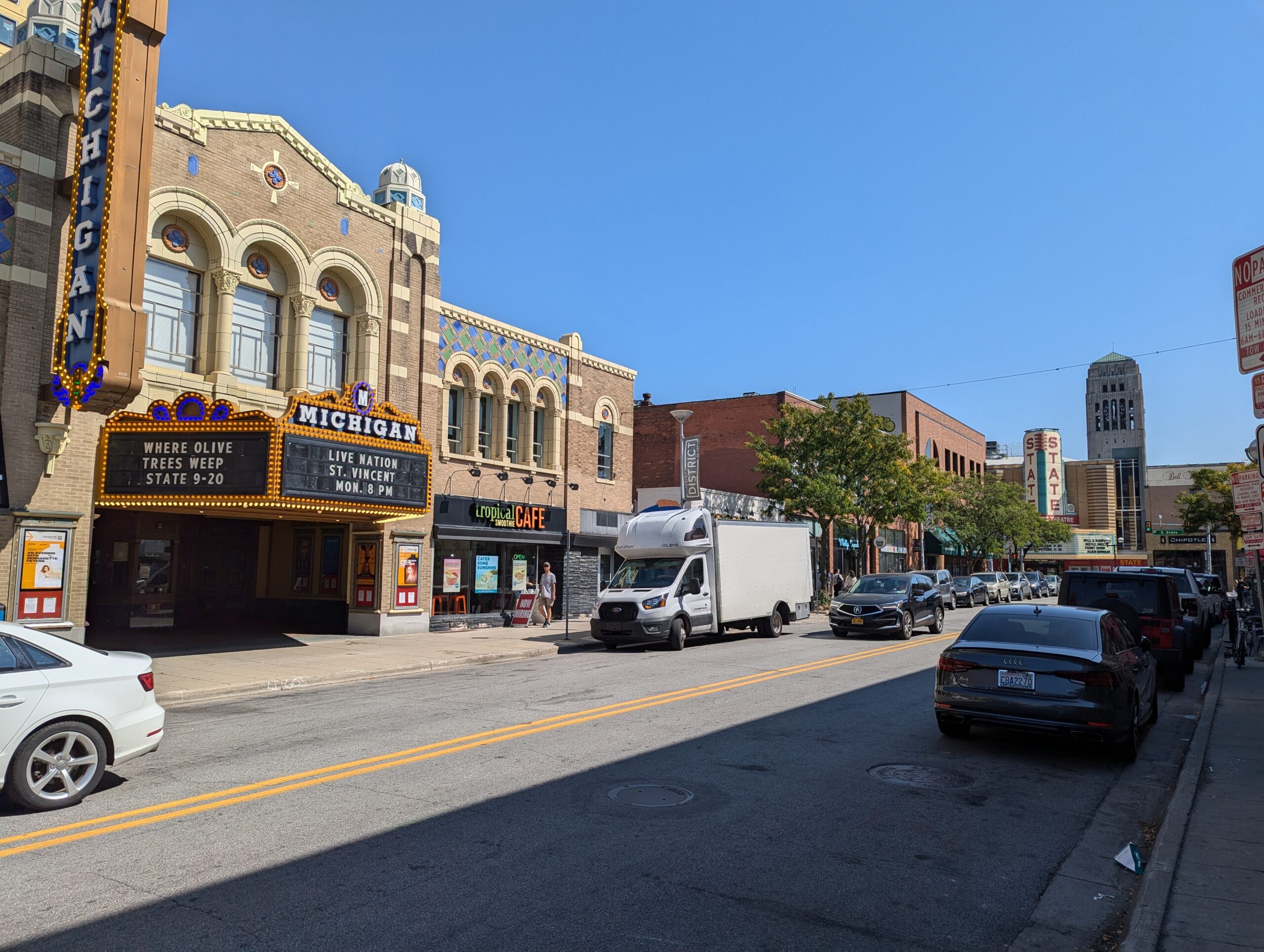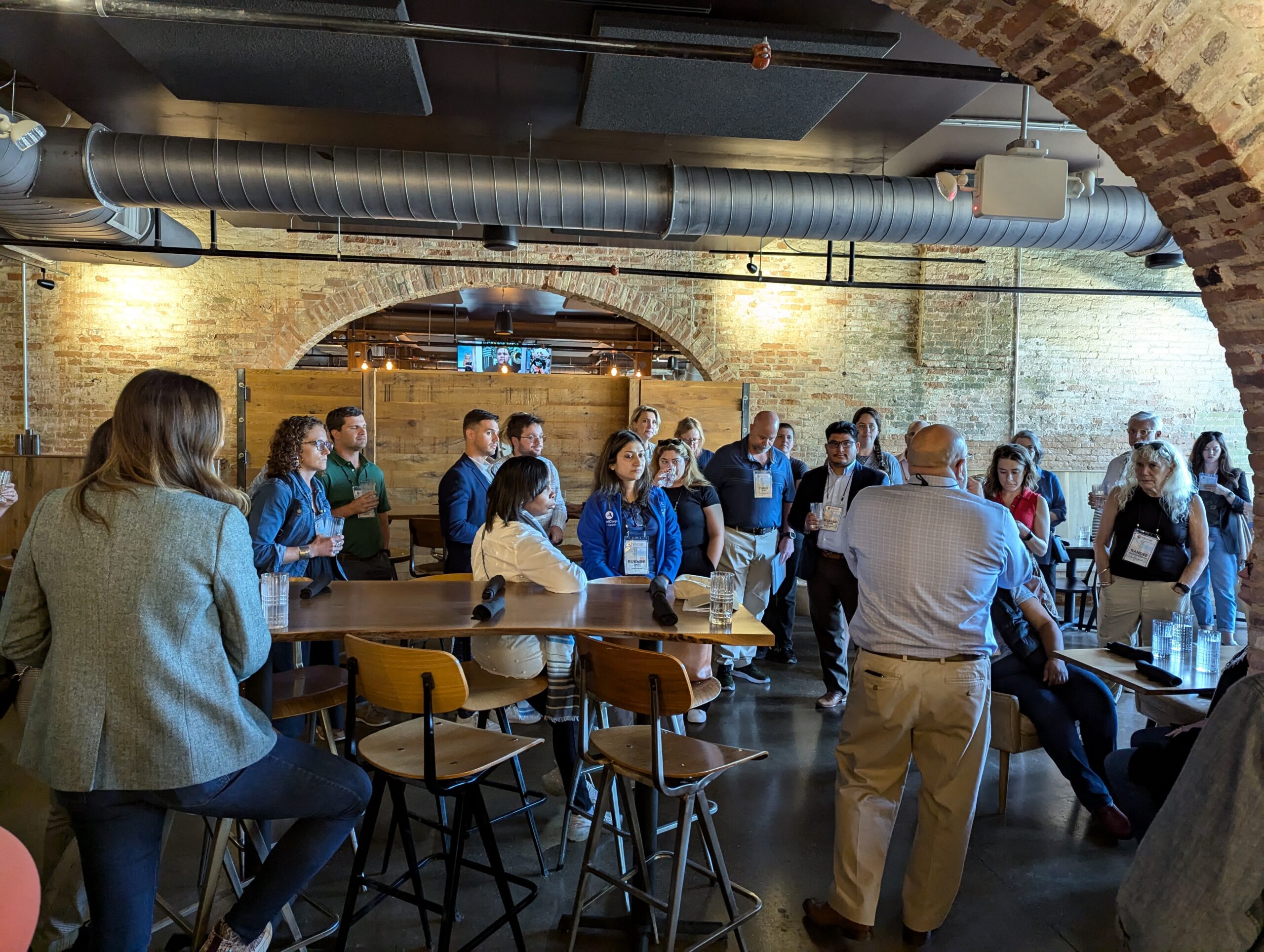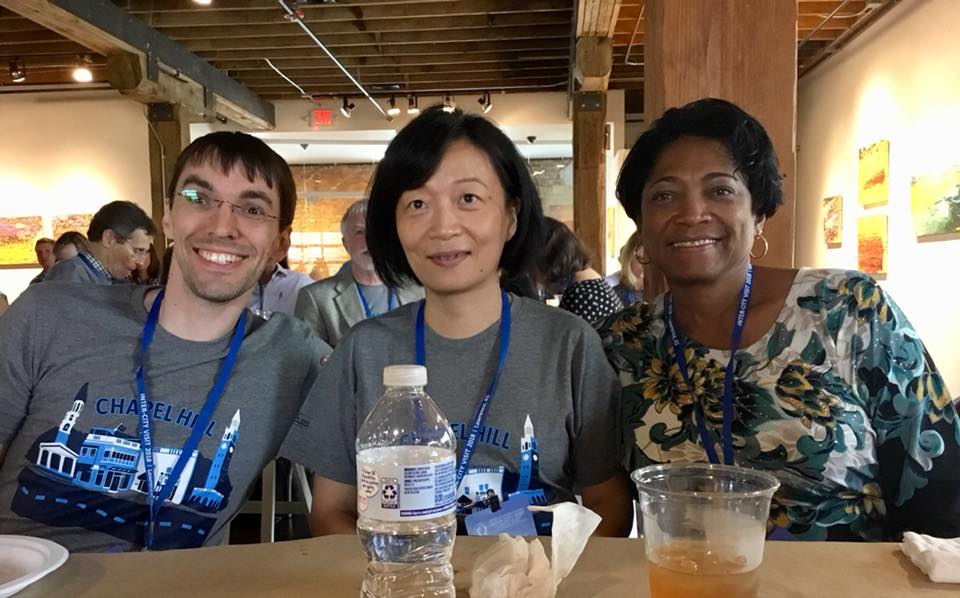About a hundred of Orange County’s movers and shakers were in Athens, Georgia, this week for the Chapel Hill-Carrboro Chamber of Commerce’s biennial Inter-City Visit. Every two years, the Chamber leads a three-day visit to a city similar to Chapel Hill: attendees meet with town leaders, tour the community, and draw lessons about how other towns do their business and solve their problems.
This year’s ICV began Sunday (with a brief stopover in Greenville, SC) and ran through Tuesday. WCHL’s Aaron Keck was there.
Have you missed any of Aaron’s updates from Athens?
Monday Morning | Monday Evening | Tuesday Morning | Tuesday Evening
Dispatch From Athens: Part I | Part II | Part III
I’m turning on my computer to write this final piece after a trip that spanned three days, two cities, two states, and – after all that – one long, long bus ride. So you’ll forgive me if I keep this last post brief…
As always on these trips, everyone walks away on the last day full of excitement and energy, ready to get home and get to work – it’s just a question of what to work on first. Do we start the process of bringing a convention center to town, like Athens’ Classic Center? Do we accelerate the push for form-based code, as Athens has done? Or do we – as Donna Bell put it today – start by trying to identify the “low-hanging fruit,” the smaller innovations that we can act on right now?
Everybody on this trip is ready to take action, at least for the moment: we’ve all been inspired by a presentation by the head of Athens’ Chamber of Commerce (a very stereotypical Southern gentleman named Doc) about how the city of Athens and Clarke County managed to consolidate into one municipality back in the early 90s. Not that we want to merge Chapel Hill and Carrboro and Hillsborough and Orange County into one giant lump, of course – but the story of how Athens overcame adversity and took a big risk has us all excited about what we might be able to accomplish back home if we’re only willing to take a chance on things. (In our last session, Linda Convissor of UNC pointed out that that’s exactly what the entrepreneurial spirit is all about.)
Now, this being a businessy trip, it goes without saying that “taking a big risk” means being willing to say yes to new developments, including the big and innovative ones that are likely to really transform a county or a town or a neighborhood. (Cough, cough, Ephesus-Fordham.) But it also means being willing to try new, untested approaches to dealing with longstanding problems. Like affordability. On our ride home – after a surprise pit stop at a peaches-and-fireworks stand – half the bus got into a two-hour impromptu conversation on how best to develop low-cost housing in Orange County. Tiny houses? Workforce rentals? Promoting homeownership as a long-term investment? Everything was on the table. The ultimate solution will likely require multiple approaches.
If there is an ultimate solution, that is. As someone pointed out to me this week, the truth is that it’s going to be virtually impossible to resolve the affordable-housing problem. Chapel Hill is an attractive community, with only so many housing units and limited space to build more. Demand is greater than supply, which drives up prices – and as long as Chapel Hill remains an attractive community, that upward pressure isn’t going to go away. The occasional low-cost development, the affordable units here and there, won’t ever be enough to meet our needs. Greenville, SC, had lots of town-owned land that they were able to leverage for more affordable housing – but even that didn’t move the dial very much. Chapel Hill has even less land to sell.
So if we’re not likely to be able to fix the affordable housing dilemma, what do we do?
There are those who believe we should just accept it. “Chapel Hill is going to be an affluent community,” they say, “and we need to ask ourselves, is that really such a bad thing?” (I’m paraphrasing a line I heard just this week.)
On the other hand, there’s the Carrboro alderman I spoke with in Greenville, who was scared they were spending their life building a community too nice for them to afford to live in. We take the fatalistic approach, we’re giving up on all the people who make this community run – not just that alderman, but also the housekeepers, police officers, town workers, and more.
One thing’s for sure, though. If we’re going to address this problem, it’s going to take some outside-the-box thinking – and it’s going to take some risks.
And it may take an approach from multiple angles. Affordability isn’t just about housing, after all: it’s also about food costs, transportation costs, taxes, the cost of living in general, and – perhaps most importantly – the amount of money you’re making in the first place. Athens knows. Their poverty rate is upwards of 35 percent, third-highest in the nation for a city its size. They’ve tried all sorts of things: cool collaborative educational programs that link the K-12 district with the community college and UGA; a concerted effort to consolidate redundant nonprofits and other services into a more efficient machine; an anti-poverty program called Partners for a Prosperous Athens that drew 850 residents to its first meeting alone. But nothing’s worked. What’s the problem? Delene Porter of the Athens Area Community Foundation says it’s largely about jobs: the unemployment rate is actually very low, but the jobs that exist in Athens simply don’t pay enough for people to comfortably live on. What they need – and what they don’t have – is a living wage. (Are there unions in Athens, who might agitate for one? Hell no. “I don’t think we have any active unions,” says Porter. That lack of unions may have just helped Athens in the short term – Caterpillar, the big manufacturer that just moved in, moved in partly because there were no unions in town. But what does that say about the wages they’re likely to offer? Nothing good.)
Can we in Orange County address the poverty issue by pushing for a living wage? In Greenville, the town has a pretty specific master plan governing how they want their downtown to be developed – including a rough idea of what percentage of downtown businesses are to be unique local stores and what percentage are to be national ‘anchors.’ They’ve made that happen by working together with developers, in a collaborative partnership – making sure everyone’s on the same team, and making sure all sides can benefit from a development agreement. Can Orange County partner with developers in the same way? Can we commit to giving developers the facilitating partnership they need to succeed, and can those developers be facilitating partners in our push to end poverty – by recruiting businesses that guarantee a living wage to their employees?
Is that something that’s possible?
Maybe. Maybe not. But one thing is certain, as we drive out of Athens and head home – our problems are still going to be waiting for us, and we’ll need some entrepreneurship of our own if we’re going to fully solve them.
Column originally posted September 24, 2014, 2:24 a.m.




